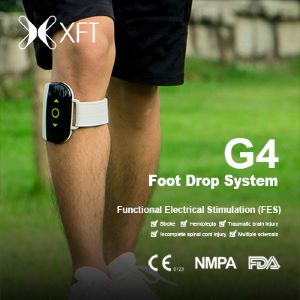Oral Presentation
A game-based application increases enjoyment and motivation during vestibular rehabilitation exercises
Wednesday, November 1, 2023
5:30 PM - 5:36 PM
Location: Station 8
Research Objectives: To investigate if using the Vestibular Rehabilitation App™ increases enjoyment and motivation during vestibular exercises.
Design: Cross-sectional design with one testing session.
Setting: Laboratory setting
Participants: Forty participants (20 females) between 60-75 (mean age 67±5.7 years) with unilateral or bilateral vestibular hypofunction
Interventions: Participants performed two sessions (one with and one without the app in random order) of vestibulo-ocular X 1 exercises in the yaw and pitch planes, weight shifting exercises in the antero-posterior, medio-lateral, and omnidirectional movements, and single leg stance on each leg.
Main Outcome Measures: The Usefulness, Motivation, and Enjoyment Questionnaire2 evaluated usefulness, motivation, and enjoyment when using the Vestibular App. The User Interface Questionnaire was used to evaluate the overall reactions to the software. This rates several reactions on a scale of 0 to 9 (with 5 being neutral). The Perceived Ease of Use Questionnaire was used to evaluate the ease of use of technology.
Results: Ninety-two percent of participants agreed that it was fun to use the app to do the vestibular exercises, and 97% reported feeling motivated while playing the games when they saw the trophies/scores in the App. 92% agreed that using the app would improve their rehabilitation performance and would make it easier to do their rehabilitation. 95% agreed that learning to operate the app was easy and 100% reported that their interaction with the app was clear and understandable.
Conclusions: The App increased engagement with the vestibular exercises and was motivating to participants. Technology that is easy to use is perceived as useful to patients with dizziness and can increase adherence to the exercises.
Author(s) Disclosures: Research reported in this publication was supported by the NIDCD of the National Institutes of Health (NIH) (R44DC017408). Content is solely the author’s responsibility and does not necessarily represent the official views of the NIH. Roos, Pickle, and Zehnbauer have ownership in TheraVista Health. The remaining authors have no conflict.
Design: Cross-sectional design with one testing session.
Setting: Laboratory setting
Participants: Forty participants (20 females) between 60-75 (mean age 67±5.7 years) with unilateral or bilateral vestibular hypofunction
Interventions: Participants performed two sessions (one with and one without the app in random order) of vestibulo-ocular X 1 exercises in the yaw and pitch planes, weight shifting exercises in the antero-posterior, medio-lateral, and omnidirectional movements, and single leg stance on each leg.
Main Outcome Measures: The Usefulness, Motivation, and Enjoyment Questionnaire2 evaluated usefulness, motivation, and enjoyment when using the Vestibular App. The User Interface Questionnaire was used to evaluate the overall reactions to the software. This rates several reactions on a scale of 0 to 9 (with 5 being neutral). The Perceived Ease of Use Questionnaire was used to evaluate the ease of use of technology.
Results: Ninety-two percent of participants agreed that it was fun to use the app to do the vestibular exercises, and 97% reported feeling motivated while playing the games when they saw the trophies/scores in the App. 92% agreed that using the app would improve their rehabilitation performance and would make it easier to do their rehabilitation. 95% agreed that learning to operate the app was easy and 100% reported that their interaction with the app was clear and understandable.
Conclusions: The App increased engagement with the vestibular exercises and was motivating to participants. Technology that is easy to use is perceived as useful to patients with dizziness and can increase adherence to the exercises.
Author(s) Disclosures: Research reported in this publication was supported by the NIDCD of the National Institutes of Health (NIH) (R44DC017408). Content is solely the author’s responsibility and does not necessarily represent the official views of the NIH. Roos, Pickle, and Zehnbauer have ownership in TheraVista Health. The remaining authors have no conflict.

.jpg)
